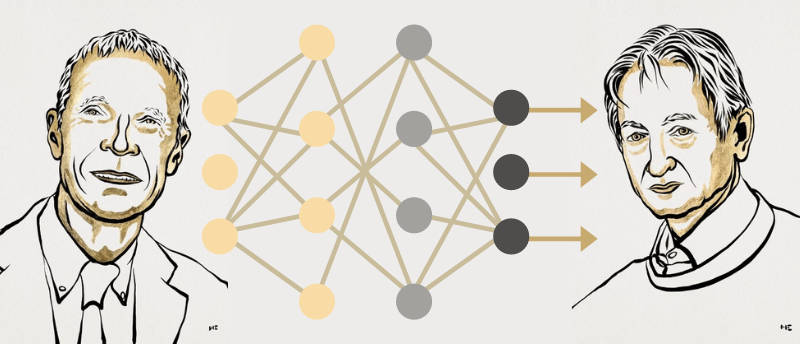My Take on Nobel Physics 2024

This year’s Nobel Prize in Physics came with an unexpected (at least for me) twist that has many scientists, probably even the laureate himself, Geoffrey Hinton, doing a double-take. Known primarily for pioneering deep learning, Hinton’s contributions have been indeed transformative and made people like me passionate about this field-but are they truly a part of “physics”?
As a researcher immersed in deep learning, my first reaction to Hinton’s win was a mix of surprise and curiosity. The Nobel Committee stated that the prize was awarded “for foundational discoveries and inventions that enable machine learning with artificial neural networks.” However, this left many of us asking “How does that connect to physics?”
When I first saw the announcement, my initial thought was: “Wait, is there now a Nobel Prize for mathematics or computer science?” But the prize specifically highlighted the Boltzmann machine – one of Hinton’s earlier works inspired by physics principles (Note the word here: “inspired”). Yet, if you have been involved in deep learning over the past decade, you would know that Boltzmann machines are not exactly in vogue. In fact, when I first learned about them years ago, our professor admitted, “We will still teach you about the Boltzmann Machines, but no one really uses them anymore.” By then, the spotlight had already shifted to GANs, and now, diffusions are taking over the field. It is hard to recall a time in the last decade when Boltzmann machines were discussed for image classification or generation, which is one of the accomplishments highlighted in the Nobel citation. If I want to give this prize to some sort of topic in deep learning, would it be Boltzmann Machines? Would I want to give this prize to Geoffrey Hinton? My answer is a huge NO to the former and a YES to the latter.
For most of today’s deep learning practitioners, the foundational moment was AlexNet or “Attention is All You Need”, not Boltzmann Machines. AlexNet brought neural networks to the forefront, proving their potential on large datasets, and subsequently opened the door for later innovations, like transformers. So why recognize a tool that is mostly a relic?
This isn’t to say that Geoffrey Hinton isn’t deserving. He is undoubtedly one of the giants of machine learning. But does awarding him a Nobel in Physics hint that advancements in physics itself were overlooked? Were there really no groundbreaking discoveries in physics worthy of recognition this year?
If that wasn’t surprising enough, the Nobel Committee awarded the Chemistry prize to DeepMind’s AlphaFold the next day. The AlphaFold award, though still unconventional at least for me, was far easier to understand: AlphaFold tackles a chemical problem directly by predicting protein structures, which has already propelled research in biology and chemistry. Unlike the Boltzmann machine, AlphaFold’s success relies on an intricate chemical foundation, and its impact extends directly into scientific discovery.
The Physics prize, on the other hand, left many questioning whether it’s enough for an innovation to “slightly touch on physics” when its primary field is elsewhere. For those of us in AI and machine learning, it did bring a bit of unexpected validation. After years of being teased about “just tuning hyperparameters,” this Nobel seems like a recognition that machine learning, indeed, is serious science… or is it? This is a question for another day. Note: The question I posed earlier really got me thinking. If I had to award a significant advancement in AI, what would I choose? For me, it would be automatic differentiation…
Reference
Geoffrey Hinton – Facts – 2024. NobelPrize.org. Nobel Prize Outreach AB 2024. Wed. 13 Nov 2024. https://www.nobelprize.org/prizes/physics/2024/hinton/facts/